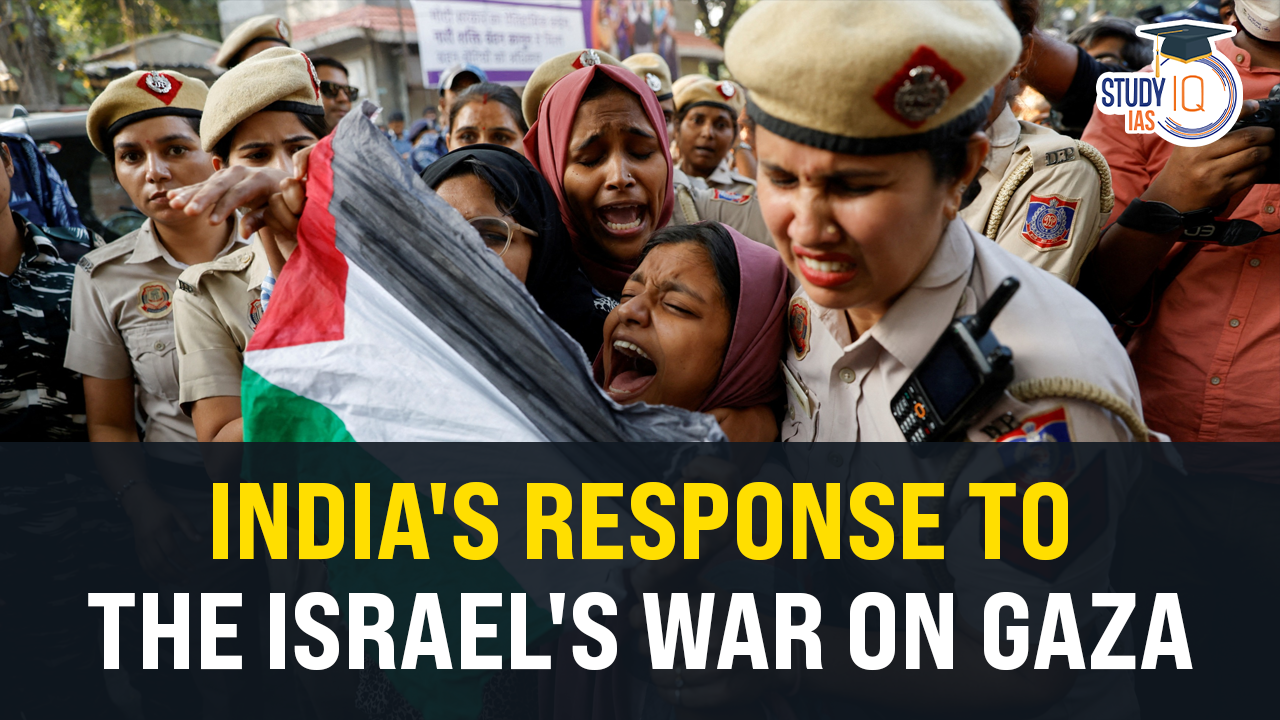Table of Contents
Context
- October 7, 2024 marked one year since Israel’s war on Gaza began.
- This highlighted the devastating impact on civilians in Gaza.
More in News
- The conflict provoked massive global demonstrations in cities across Europe and the U.S.
- In stark contrast to global protests, India has seen limited public demonstrations against the violence in Gaza.
- g., In Kerala (rallies in Malappuram and Kozhikode) and smaller protests in Kolkata and Chennai.
- The Indian government has reportedly restricted protests against the conflict, with legal actions taken against individuals supporting Palestinian causes.
| Humanitarian Crisis in War |
|
Responses in India
Political and Civil Society
- Hindutva Influence: The Indian right-wing, particularly the Hindutva ideology, has shifted support away from Palestine and towards Israel.
- This has affected how Indians see the issue, with less empathy for Palestinians than before.
- Opposition Silence: While a few Opposition leaders have spoken up for Palestine, most political parties haven’t taken a clear stand.
- Leftist Protests: Only Left parties have held small protests and backed the Boycott, Divestment, and Sanctions (BDS) movement against Israel, but overall, public support has been weak.
- Anti-Imperialism Decline: India’s focus on close relations with powerful countries like the United States has reduced its attention on anti-colonial causes like Palestine’s struggle.
Media and Public Perception
- One-Sided Reporting: Indian media has covered the Israel-Gaza conflict, but often from Israel’s perspective, focused on the fight against terrorism and avoided deeper discussions about the historical causes of the conflict.
- The conflict goes back to 1948, when Palestinians were forcibly removed from their land. Failing to acknowledge this history makes it harder for some people, especially in India, to feel the moral outrage the situation deserves.
| India-Israel Relations |
|
Conclusion
The ongoing Israel-Hamas war continues to evoke strong reactions globally while eliciting a muted response from India. This discrepancy reflects deeper political shifts within India and highlights the complexities surrounding international relations and humanitarian concerns in conflict zones. As the situation evolves, it remains critical for global actors to address both immediate humanitarian needs and long-standing political grievances affecting peace in the region.


 Topological Materials: The Future of Qua...
Topological Materials: The Future of Qua...
 China’s Deep Sea Station in South Chin...
China’s Deep Sea Station in South Chin...
 Project ICE-CRUNCH: India-Switzerland Co...
Project ICE-CRUNCH: India-Switzerland Co...





















